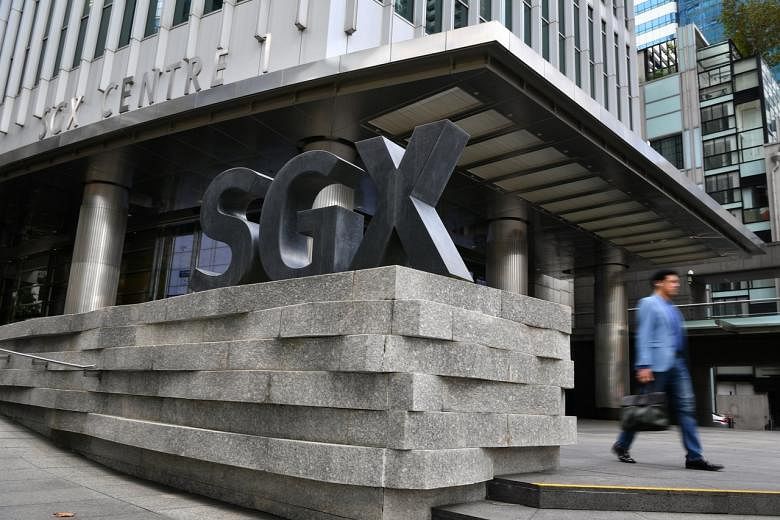Hundreds of listed companies will save time and money and be able to focus more on their long-term objectives after the Singapore Exchange (SGX) announced a major change of rules.
The bourse said yesterday that it was planning to scrap the requirement that all companies with a market capitalisation exceeding $75 million must report their earnings every three months.
This did not mean that investors would be kept in the dark as SGX said all companies must disclose significant information and developments immediately.
Once the new reporting regime kicks in on Feb 7, the quarterly reporting requirement will apply only to riskier companies - including those whose auditors have raised alarms.
Currently, almost 600 of the 850 companies listed here have to file quarterly financial reports - a task that is deemed onerous, time-consuming and costly. After Feb 7, only about 100 or so companies, which will be identified by the SGX Regulation (SGX RegCo), will have to do so.
The remaining listed companies will be given more breathing room and will have to file their financial reports only every six months.
SGX RegCo chief executive Tan Boon Gin said yesterday: "Regulation needs to be more targeted, even surgical, so as to ensure compliant companies aren't overburdened while non-compliant companies receive more attention."
"Internationally, there is a shift away from quarterly reporting, and this is to allow companies to focus on the long term," he added.
The European Union and Britain have moved away from quarterly reporting to cut the time and costs that these statements require.
Still, safeguards have been built in, especially for firms deemed at risk. Mr Tan said: "Some com-panies face immediate challenges and need to focus on the short term to solve their problems. These are the companies that should be made to do quarterly reporting. Size-based quarterly reporting does not achieve this outcome."
Singapore Business Federation chief executive Ho Meng Kit welcomed the move. "SBF has always held the view that rules and regulations should not overburden businesses and, as result, divert their attention from their main focus of value creation," he said.
Olam group chief financial officer Neelamani Muthukumar agreed. "It is not just about saving cost, but time. We are operating in so many countries, and quarterly reporting takes up a lot of senior management time."
Mr Tan said company actions that affect stakeholders - such as interested-person transactions or providing significant financial assistance - will have to be disclosed immediately.
Under tighter rules being implemented for disclosure, a broader range of significant acquisitions will require companies to make an immediate announcement and get shareholder approval.
Significant transactions will have to be valued independently, while companies must disclose changes likely to affect near-term earning prospects and tradesensitive information that can influence investors' decisions to buy, hold or sell securities.
Mr Tan said: "There is currently a misconception in some parts of the market that companies only need to disclose information that has an impact on share price. We are making it clear that this is not the case."
More information will also have to be disclosed for rights issues.
Securities Investors Association (Singapore) president David Gerald said: "Companies embracing transparency and accountability to their stakeholders should not find the amendments of the rules to be onerous.
"Companies should embrace the spirit of the law, and not just the letter of the law. This would ultimately create more trust with their investors and shareholders."
The Monetary Authority of Singapore said: "Ultimately, what is important is that companies and their boards must seek to conduct meaningful and regular engagement with their stakeholders, keeping them well-informed through timely, pertinent and high-quality disclosures."

